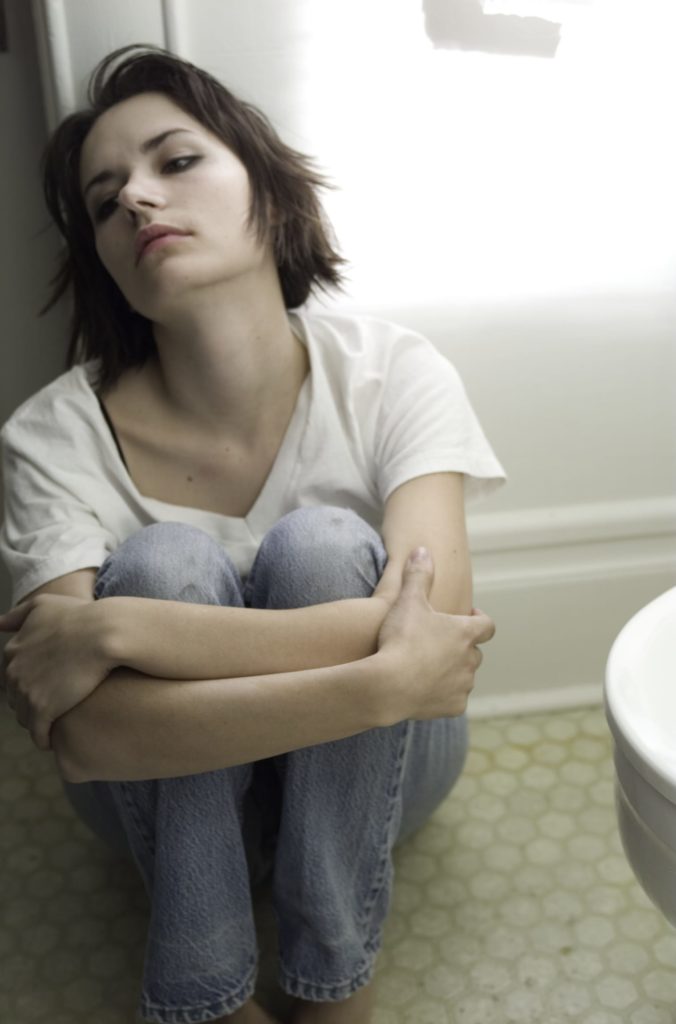Having a child with an addiction is one of the most painful situations any parent can face. Most mothers and fathers are at a loss for how to deal with a drug-addicted son or how to deal with a drug-addicted daughter. Addiction devastates the whole family, whether your child is a teen, a young adult, or a grown-up. Helping your addicted child may require you to act in ways that may not come naturally to you. At The Right Step, we understand the damage that substance use can do to an individual and their family which is why we offer young adult drug addiction treatment. Call 888.488.6017 today and let us help you start healing.
Dealing with a Drug-Addicted Child
“One of the hardest things for parents is they are worried that their kids are going to end up hating them,” says Jennifer Hearn, M.Ed., LPC, admissions director at The Right Step. “This results in parents continuing to engage in enabling behavior out of fear of losing their child’s love. Or we see parents act out of fear because they are not in control of what is going on. They are terrified about what might happen to their child if left to their own devices.”
So What Can Parents Do?
“Don’t be worried about hurting their feelings. Be worried about saving their life,” she says. “People with addiction need consequences, boundaries, and limits. That’s why it is important for parents to get involved. Parents can be a catalyst to make someone really look at themselves and consider making a change.”
Consider These Strategies for Dealing with a Drug-Addicted Child
Hearn and other experts recommend specific steps to get your drug-addicted son or drug-addicted daughter closer to addiction recovery:
Be Willing to Acknowledge the Problem
At first, you can’t imagine that your child is using drugs. “Parents are always in denial in the beginning,” says addiction counselor Mark Levine, LICDC-CS, MAC. “It’s the emotionally safe thing to do. To acknowledge a problem would cause most parents to blame themselves—something they would rather avoid.” It is human nature to avoid it, but the key to learning how to deal with a drug-addicted daughter or drug-addicted son is opening your eyes to the problem.
Learn the Healthiest Way to Approach Your Child
Your first impulse may be to confront your child when they are on drugs, scream and yell out of frustration, or pile on the guilt. It won’t work. “Parents should express their feelings without judging,” says Levine. “This is a slow process, and patience is required.” He also recommends reaching out to other parents and experts. “Addiction is an illness, and it’s vital to learn how to communicate with someone with a brain disease,” he says. “Normal avenues of evoking guilt will not work when speaking to an addictive brain. And neither will outbursts of anger or shame. “
Make Sure to Practice Self-Care
As difficult as it may be, put the oxygen mask on you first. “Addiction dramatically affects a family system,” says Levine. “Family members go through their own phases of addiction recovery, so self-care is critical.” Parents need to develop long-term coping skills. This may include individual therapy, support groups, and 12-step groups like Alanon. It will also help to have a friend who can listen and a therapist to guide you. Parents may benefit from couples counseling while learning how to deal with a drug-addicted daughter or son.
Set Healthy Boundaries to Avoid Enabling
Part of self-care is protecting yourself from harm and finding the strength to withstand emotional manipulation. But you also have to set boundaries for your child’s sake. “Boundaries could be a myriad of things parents are in control of,” says Hearn. “Don’t be afraid of boundaries. Kids thrive with structure and accountability, and that starts with the parents. For example, don’t give them money,” she says. “And trust your gut.”
Also, consider these boundaries:
- Go to the store with them if they need you to buy them something.
- Buy gift cards rather than offering cash.
- Don’t allow them to hang out with drug-abusing friends.
- Take away the car.
- Download apps that allow you to track their location.
- Don’t let them drink or use drugs in your house “because it’s safer.”
Protect Material Assets
Parents may enable addiction by unwittingly allowing access to valuable items. “Your loved one may be stealing things from you,” warns Katie Ziskind, a holistic family therapist. “You may find jewelry, a musical instrument, or other expensive items missing from your home.” This is especially common with young adults, who may take items and pawn them for drug money. “Make sure you have a lockbox for valuables you do not want stolen.”
Remove Them from the Situation
Many people develop drug addictions in their teens and continue with a drug habit that impacts their ability to live a normal life. Others start using drugs in college or as young adults. As soon as you recognize the problem, try to remove your loved one from the situation, even if it means losing money on tuition or dorms.
Get an Accurate Diagnosis
Many parents discover there is an underlying mental health issue fueling their child’s drug use. A benefit of getting your child into therapy or residential drug rehab is that you can get a complete picture of co-occurring mental health conditions. In dual diagnosis treatment, your child can receive help for all disorders at the same time.
Professional Intervention
You may feel you’ve reached the end of your rope as you try to figure out how to deal with an addicted son or daughter. A crisis, such as getting kicked out of school, losing a job, or getting into an accident or legal trouble, may illuminate the need for change. Some parents stage an addiction intervention to help get their addicted child into treatment before things worsen. Professional interventionists help create a psychologically and physically safe environment to convince a son or daughter to accept drug or alcohol treatment.
The Right Step Can Help a Drug-Addicted Child and Family to Heal
If you or a loved one are caught in the cycle of addiction, The Right Step can help. Our experienced and compassionate staff of addiction treatment professionals is ready to help make your family whole again. Call 888.488.6017 or contact us online to get started.






